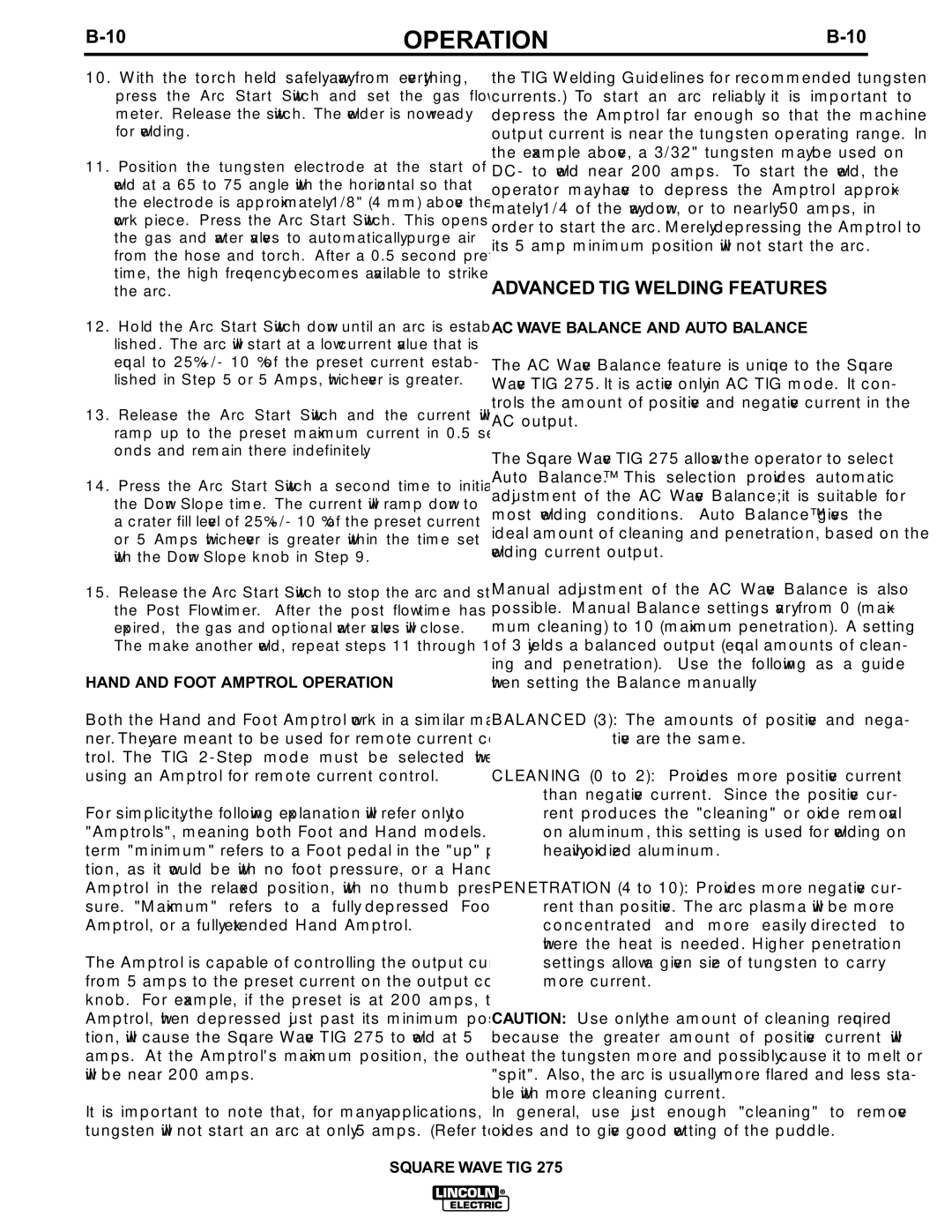IM609-B specifications
The Lincoln Electric IM609-B is a cutting-edge welding machine that stands out for its advanced features and robust design, making it an essential tool for both professionals and hobbyists alike. This multi-process inverter welder excels in delivering high performance across various welding methods, including MIG, TIG, and stick welding. The versatility of the IM609-B allows users to tackle diverse welding applications, ensuring adaptability in different work environments.One of the standout features of the IM609-B is its lightweight and compact design, which enhances portability without compromising on power output. Weighing only around 40 lbs, this machine is designed for easy transport between job sites, making it ideal for mobile welders who need to work in various locations. The durable construction also ensures reliability and longevity, further enhancing its appeal.
In terms of technology, the IM609-B incorporates Lincoln Electric's advanced inverter technology. This feature not only ensures a smooth and stable arc but also enhances energy efficiency. The machine operates on both 120V and 230V input power, providing the flexibility needed for different power sources. The digital display allows for precise adjustments on the go, ensuring that users can optimize their settings for specific welding tasks.
User-friendliness is another characteristic that sets the IM609-B apart from its competitors. The intuitive control panel is designed for easy navigation, allowing users to quickly adjust parameters such as voltage, wire feed speed, and amperage. This ease of use is particularly beneficial for those new to welding, as well as experienced welders who require efficient operation.
Safety features are also paramount in the design of the IM609-B. The machine includes built-in thermal overload protection, ensuring that it operates within safe temperature ranges to prevent damage during extended use. Additionally, the fault detection system alerts users to any operational issues, allowing for quick troubleshooting and reducing downtime.
In conclusion, the Lincoln Electric IM609-B is a formidable welding machine that combines versatility, portability, and advanced technology. Its multi-process capabilities, lightweight design, and thoughtful features make it an excellent choice for a wide range of welding applications. Whether for professional use or home projects, the IM609-B delivers exceptional performance that meets the demands of modern welders.
